Tech
Dell and Nokia agree partnership on private 5G, cloud networks
Published
1 year agoon
By
Ekwutos Blog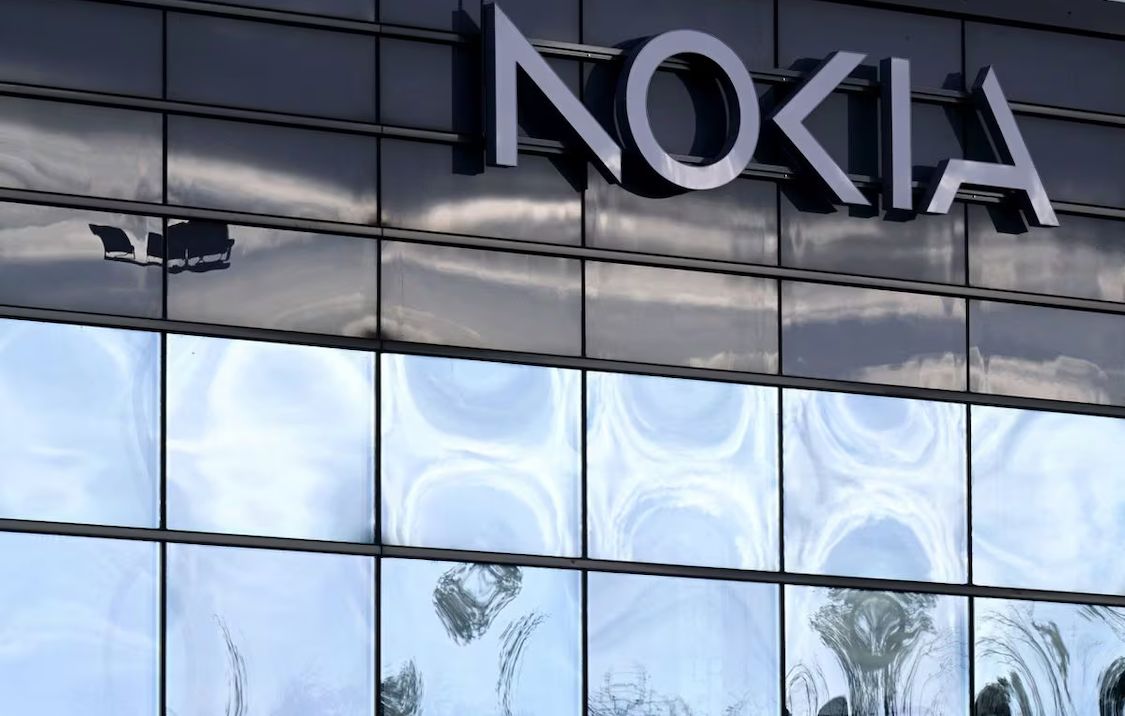
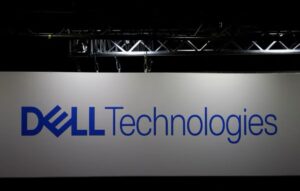
Dell
The companies will expand on an existing partnership and work to integrate NDAC with Dell’s NativeEdge software platform, as they look “to advance open network architectures in the telecom ecosystem and private 5G use cases among businesses,” they said.
“Our continued collaboration with Dell will help address the future needs of our customers brought on by the increasing demands on networks and provide solutions to help communications service providers scale modern networks to the cloud,” said Nishant Batra, Nokia’s chief strategy and technology officer.
Reporting by Olivier Sorgho Editing by Mark Potter
You may like
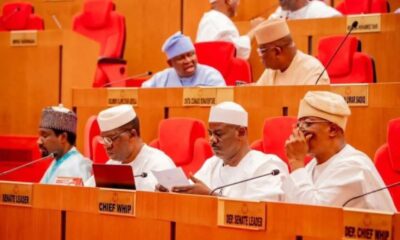

The senate has called on the federal government to take urgent action to address the rising cost of data services in the country.


Tariff uncertainties to keep gold prices in India between Rs 87-90K range in H1-2025: Report
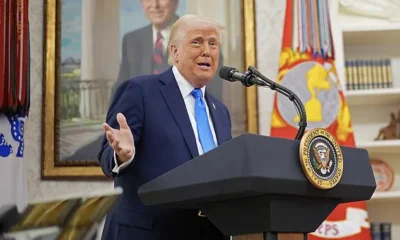

The telling sign Trump is walking back his public feud with Canada
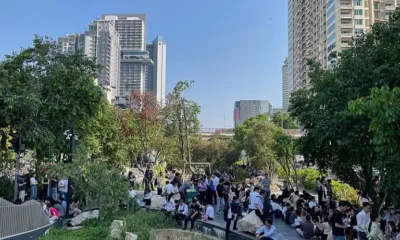

Is it safe to travel to Thailand and is Bangkok airport open? Latest advice after Myanmar earthquake
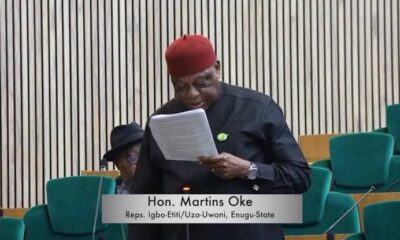

BREAKING: INEC Receives Petition to Recall Federal Lawmaker Martins Oke
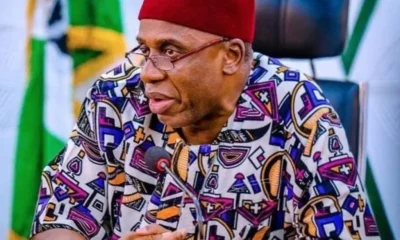

President Tinubu using state of emergency to intimidate governors – Amaechi
Tech
The senate has called on the federal government to take urgent action to address the rising cost of data services in the country.
Published
12 hours agoon
March 29, 2025By
Ekwutos Blog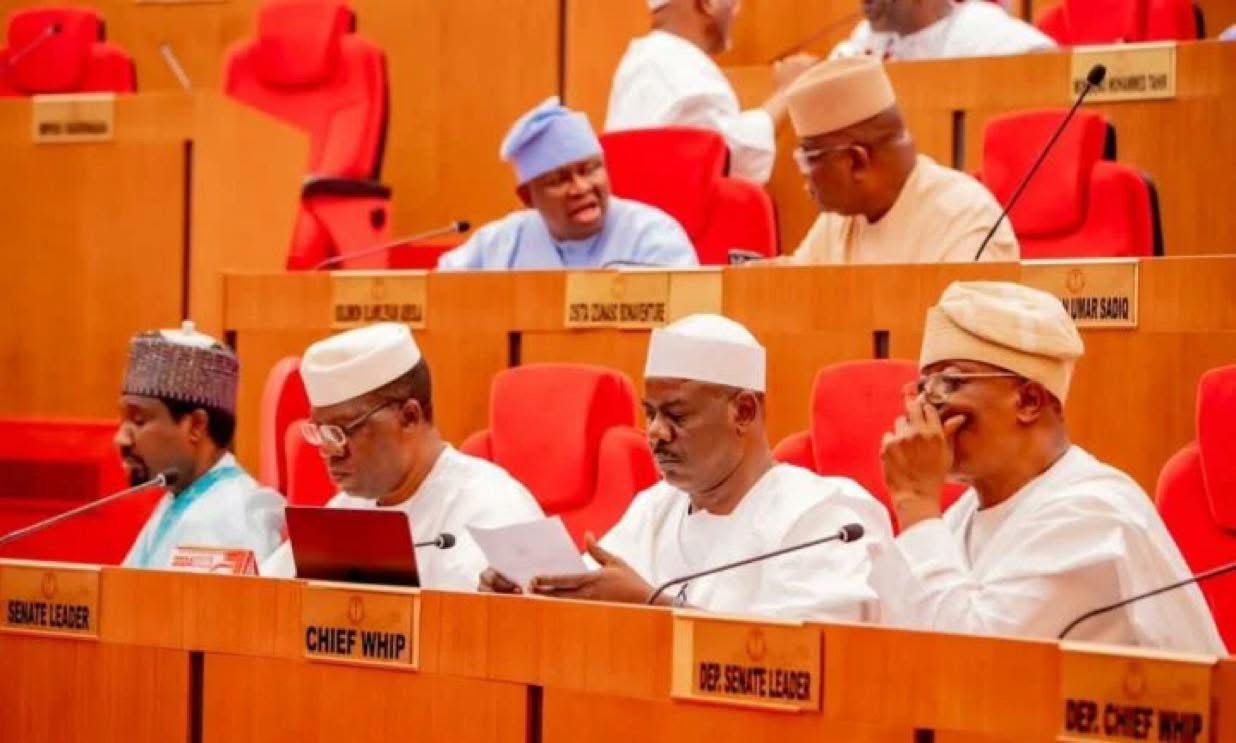
During Wednesday’s plenary, lawmakers debated a motion sponsored by Asuquo Ekpeyong, senator representing Cross River south, highlighting the financial strain caused by recent hike in data tariffs.
Ekpeyong warned that the surge in data costs was a major setback for young Nigerians who depend on the internet for their livelihoods.
He argued that many young people use digital platforms for freelancing, e-commerce, content creation, and software development, making affordable internet access crucial to their economic survival.
“Telecommunication providers in Nigeria have recently increased the cost of data services by as much as 200%. A move that has placed significant financial strain on millions of Nigerians, especially young people who rely on the internet for their livelihood,” he said.
“Young Nigerians have embraced the digital economy, leveraging the internet for various income-generating activities including freelancing and remote work, direct marketing and social media management, e-commerce, content creation on various platforms, online training, software development, web design, mobile app creation, content creation of various platforms, online education, etc.
“The senate notes that young Nigerians have embraced the digital economy, leveraging the internet for their livelihood, leaving them heavily dependent on mobile telecommunications companies for internet access, and that the sudden and substantial increase in data cost threatens their economic survival and limits access to critical digital services.
“The senate is further concerned that the reasons provided by telecom providers for the data price hike, including high operational costs of favourable exchanges, are untenable, and appears that instead of addressing the root causes of the high cost of doing business in Nigeria, the burden is being unfairly transferred to end-users.
“Senate is aware that the high cost of doing business in Nigeria is driven by multiple challenges, such as increased operational risk and insurance costs.
“The senate believes that urgent government intervention is required to ensure that affordable internet access remains available to all Nigerians, particularly to the young Nigerians who are at the backbone of Nigeria’s digital economy.
“The senate accordingly resolves to urge the federal government to engage with telecommunication providers to review the recent increase in data costs and ensure the pricing remains fair and affordable for all Nigerians.”
The motion was seconded by Titus Zam, senator representing Benue north-west, and received the support of other lawmakers.
Victor Umeh, senator representing Anambra central, criticised not just the rising cost of data but also increases in telecom charges and Pay TV tariffs, accusing regulatory bodies of failing to protect Nigerians.
“If you buy airtime or data, within minutes, you are out of it. Nigerians are suffering so much, and we cannot turn a blind eye,” he said.
Sadiq Umar, senator representing Kwara North, warned that the price hike disproportionately affects young people, who form a significant part of Nigeria’s workforce.
“These service providers must make life easier for young Nigerians, not harder. The government needs to step in before this situation worsens,” he said.
Following the debate, Senate President Godswill Akpabio put the motion to a vote, and it was unanimously adopted.
Lawmakers urged the federal government to engage telecom providers to review and reduce the recent increase in data costs.
They also called on the ministry of communications, innovation, and digital economy to develop a policy framework for affordable internet access.
Lawmakers further recommended the creation of tech hubs across the country to provide free or subsidised internet for entrepreneurs, students, and innovators.
They also directed the senate committee on communications to investigate the factors driving high data costs and propose solutions to make the telecom sector more business-friendly.
Speaking after the motion was adopted, Akpabio praised Ekpeyong for raising the issue, saying the intervention would support young entrepreneurs and ensure fair pricing in the digital economy.
“This motion, when implemented, will assist our young entrepreneurs, not only to remain in business but also to ensure that they have affordable pricing that allows them to generate profits,” he said.
Tech
9mobile customers raise alarm over network shutdown, blockage from porting, call out NCC
Published
1 week agoon
March 19, 2025By
Ekwutos Blog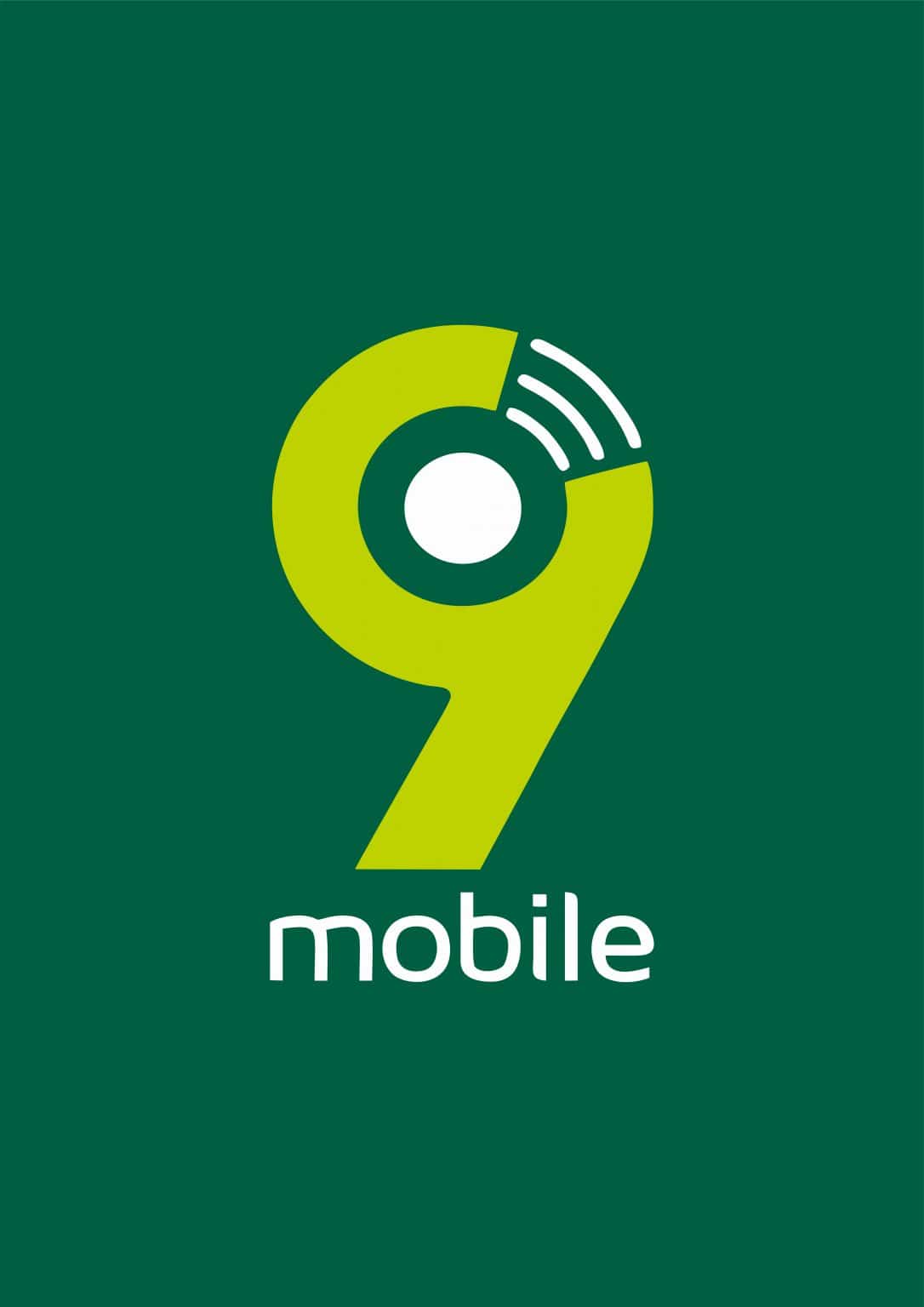
Thousands of 9mobile customers are currently experiencing hardship due to the telecom operator’s decision to block porting requests.
Ekwutosblog gathered that for over a month, 9mobile subscribers have not been able to receive or make calls, send text or use their Sim card.
It was also learnt that the Sim card currently shows ‘No service’ or ‘emergency calls only’ nationwide.
A subscribers who spoke to our correspondents said the issue with the 9mobile network began last year and has now worsened. Subscribers also accused the telecom operator of blocking their porting requests.
Investigation by Ekwutosblog in major parts of the FCT revealed that there was no service while using a 9mobile sim.
A visit to the 9mobile Office in Kubwa and the Central Area also showed that there was no business activities going on due to unavailability of network.
A visibly angry subscriber who spoke to our correspondent said he has lost business due to the issue. He also called on the Nigerian Communications Commission, NCC, to sanction 9mobile.
One of the subscribers, identified as Ifiok Samson said, ”NCC needs to sanction 9mobile and issue a directive that they should allow their customers to port to other networks.
“We have been through a lot since last year. The network has been terrible and it has worsened since 2025.
”We barely have service for two days in a week. This is my main line and I have tried to port since January but it appears that 9mobile blocked its customers from porting. When I visited their office, their representative told me they had no network. They said this lackadaisical, like it isn’t their main purpose of doing business.
”This shows that the issue is really bad. Why should customers bear the brunt of these bad services and be forced to remain with 9mobile? Please help us. We have called on NCC and FCCPC on social media, yet no one has issued a directive to this effect. We are losing money daily due to our poor choice of using 9mobile. As a regulator please save us from this bondage.”
Here are some comments Ekwutosblog gathered from X
@Ifoye, NgComCommission, ”9mobile network has been down in Ibadan for over 2 weeks with no recovery date in sight. It is also impossible to port 9mobile numbers to other networks because they require 9mobile network to be on before that can be done. Kindly see to this because the implications are many for bank account owners, business, applicants, clients with prepaid subscriptions, etc.”
@DforDust, “9mobile has been unavailable for a month, a whole month. There’s no regulatory body dragging them, there’s no message from 9mobile about what’s going on. You know how many businesses some people would have lost because of that?!”
@PrettyaganahHello NCC, Please help us in Kano. 9mobile has been down for almost a month now and we have not been informed about it and nobody is doing or saying anything. We have lost a lot of business calls, especially being our primary lines. Please intervene.”
@motexmaryam, ”I have not used WhatsApp for almost 24 hrs because I can’t verify my number with mobile.Calls, SMS nothing is entering this God forsaking sim! Tried it at 4am still no network.”
@tony_okey, ”Please, you may have to temporarily waive the authorization code requirement for porting. I haven’t had any signal for months, so I can’t port from 9mobile. Please allow us to port from 9mobile in peace.No calls or SMS. Thank God for WhatsApp.”
@SanSparkles, ‘You guys have frustrated some of us enough. Kindly reinstate your porting services so those of us who want to port from 9mobile to another network can swiftly do that.Shutting your porting service is a selfish act.”
@aysomethin, ”Where is NCC the regulators? I went to MTN Yesterday to try to port away from this 9mobile network but was told they can’t do anything until 9mobile is back on the grid. Now I am being held ransom by a telcom. Shame.”
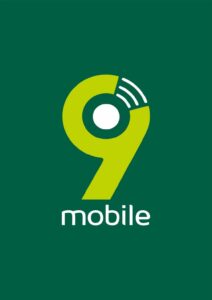
@suleman_Tanimu, ”9mobile needs to do one thing, at least make your porting service available so that customers can port to other preferred service providers. I’ve been visiting MTN office in Abuja for the past 3 weeks and the customer care keeps telling me that 9mobile porting service is down.”
Tech
The Tesla Cybercab Will Have A Surprisingly Small Battery
Published
2 weeks agoon
March 18, 2025By
Ekwutos Blog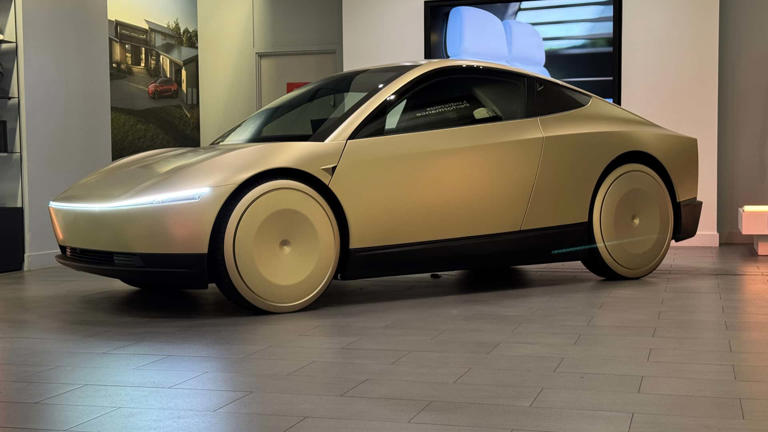
Despite that, Tesla claims an impressive range figure.
- The Tesla Cybercab is coming next year.
- With a sub-50-kWh battery pack, Tesla claims it would be able to drive “close to” 300 miles.
The Tesla Cybercab could be the most efficient electric vehicle in the world when it hits the streets sometime next year. That’s what two of the EV maker’s execs alluded to during a brief interview with Sandy Munro that explored some of the robotaxi’s peculiar features.
As a reminder, the Tesla Cybercab is a two-door, two-seater EV that doesn’t have a steering wheel–instead, Tesla claims it will be capable of driving itself and doing double duty as both a personal transport device and a self-driving taxi to bring in revenue for the owner.
It’s Tesla’s smallest car with a roof and it was designed for ultimate efficiency–when driving and during the manufacturing process. As a result, the EV could have a maximum real-world driving range “close to 300 miles” on a full charge, according to Lars Moravy, Tesla’s vice president of vehicle engineering.
More Tesla Stories
But while that’s not exactly a record-setting figure–the refreshed Model 3 Long Range has an EPA-estimated range of 363 miles–it’s the battery size that impresses. As per Moravy, the Cybercab will have a sub-50-kilowatt-hour battery pack. By comparison, the Model 3 Long Range Rear-Wheel Drive has an estimated usable capacity of 75 kWh.
If true, this would result in a real-world efficiency of 6 miles/kilowatt-hour, which is outstanding. By comparison, the facelifted Model 3, which is one of the most efficient EVs out there, is rated at 4 mi/kWh, while the Lucid Air has an efficiency of 4.3 mi/kWh. In other words, the Tesla Cybercab would have a 50% higher efficiency than the Model 3.
The car’s design and manufacturing techniques help a lot with efficiency. According to Franz Von Holzhausen, Tesla’s Senior Design Executive, the teardrop shape of the car has a big impact on reducing energy consumption. Keeping it light also plays a significant role.
While the two execs did not disclose the weight of the two-door EV, they said that its body is made from unpainted polyurethane panels. The color is added to the panels during the manufacturing process, so even if a panel is scratched, there is no base coat that will show up, making scuffs less visible.
In fact, there is very little paint on the car, which leads to lower manufacturing costs and potentially lower repair costs if something goes wrong.
The two execs reiterated that the Tesla Cybercab is on track for a 2026 commercial launch. Manufacturing equipment is currently being installed at the Texas Gigafactory and the first pre-production units are expected to roll off the assembly line this summer.

The senate has called on the federal government to take urgent action to address the rising cost of data services in the country.

Tariff uncertainties to keep gold prices in India between Rs 87-90K range in H1-2025: Report

The telling sign Trump is walking back his public feud with Canada
Trending

 Trending5 months ago
Trending5 months agoNYA demands release of ‘abducted’ Imo chairman, preaches good governance
- Business5 months ago
US court acquits Air Peace boss, slams Mayfield $4000 fine

 Politics5 months ago
Politics5 months agoMexico’s new president causes concern just weeks before the US elections
- Entertainment5 months ago
Bobrisky transferred from Immigration to FCID, spends night behind bars
- Entertainment5 months ago
Bobrisky falls ill in police custody, rushed to hospital

 Politics5 months ago
Politics5 months agoRussia bans imports of agro-products from Kazakhstan after refusal to join BRICS

 Politics5 months ago
Politics5 months agoPutin invites 20 world leaders
- Politics1 year ago
Nigerian Senate passes Bill seeking the establishment of the South East Development Commission.

